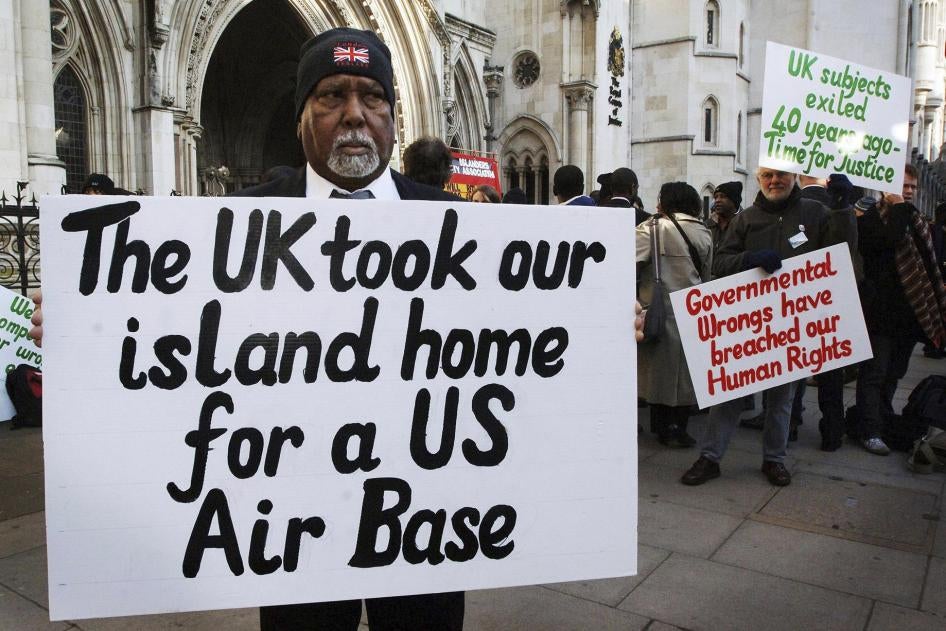I first heard about the Chagos Welfare Fund while interviewing Chagossian people in Port Louis, the Mauritian capital, in August 2022. My interest was immediately piqued because I had not realized there was any specific effort to address the economic rights of the Chagossians, many of whom I found living in abject poverty amid Mauritius’ well-touted prosperity. The country, which achieved high income status in 2020, has consistently ranked best in the Ibrahim Index of African Governance over the last decade.
On February 15, Human Rights Watch released a report based on interviews conducted between November 2021 and September 2022 with Chagossians in Mauritius, the United Kingdom, and Seychelles. One main finding of the report was that many of the Chagossians who were forcibly displaced to Mauritius by the UK government to allow the US to build a military base on their island suffered, and still suffer, poverty, stigma, and discrimination a half century later.
When they first arrived, some Mauritian residents mocked them and told them to go back to Chagos, calling them names. Half a century later, some of them continue to face discrimination and stigma, and despite the existence of the Chagos Welfare Fund, many do not enjoy an adequate standard of living.
I found many Chagossians living in dilapidated tin-roofed houses, which leak during heavy rainfall, in the poorest neighborhoods of Mauritius. They told me that they do not earn a decent income, and struggle to provide for their family’s basic food requirements. It is disturbing that nearly 50 years after the last forced deportation from their islands, many Chagossians still live in such conditions.
Mauritius has ratified the International Covenant on Economic, Social and Cultural Rights, the International Convention on the Elimination of All Forms of Racial Discrimination, and the African Charter on Human and Peoples’ Rights, which obligates the government to ensure the realization of the economic, social, and cultural rights of everyone in Mauritius, irrespective of their race, national origin, birth, or other status.
The government of Mauritius has stated that Chagossians have the same rights as other Mauritian citizens, in addition to other benefits available to them through the Chagos Welfare Fund. The Chagos Welfare Fund Act states its objectives amongst others, are to “advance and promote the welfare of the members of the Chagossian community and their descendants in Mauritius, and to develop programmes and projects for their total integration into the islands of Mauritius.”
In its 2021 periodic report to the United Nations Committee on the Elimination of Racial Discrimination, the government of Mauritius stated that it has taken some steps through the Chagos Welfare Fund to improve the standard of living of Chagossians in Mauritius. Some of the measures include scholarships, residential camps and distribution of food items for older people, food and building materials for repair of roof leaks and those whose houses were destroyed by fire, funeral grants, free yearly medical checkups, financial assistance to those going abroad for treatment, transport for hospital appointments, and upgrading of Chagossian recreational centers.
The measures do not, however, go far enough to ameliorate the suffering of some Chagossians. According to the President of Chagos Asylum People, Claudette Pauline Lefade, who was born on Peros Banhos, “not all Chagossians have benefited from these measures, and many still struggle to financially survive on a daily basis. Even if there are such interventions, they are not enough.”
The budget for the Fund for the year 2022-2023 is seven million Mauritian rupees (US$152,000). The Chairperson of the Chagos Welfare Fund Board, Olivier Bancoult, born on Peros Banhos, said this amount is inadequate for all the Chagossians’ needs. “We have been requesting the government to increase this amount, so that the Chagos Welfare Fund can attain its objectives,” he said. “The amount we receive is not enough to pay for salaries of employees, and to help all Chagossians effectively.”
The Mauritian authorities should revise their strategy to ensure all Chagossians’ right to an adequate standard of living. The strategy should include an increased budgetary allocation towards the Fund’s activities.
The authorities should ensure, in the ongoing negotiations with the United Kingdom, that any agreement between the UK and US provides full reparations to the Chagossian people for the harm those governments have caused them, with financial compensation paid directly to the Chagossians themselves. The government should also take steps to promote respect for and protect the rights of the Chagossian people in Mauritius to non-discrimination and racism, including by establishing easily accessible mechanisms for complaints and investigations of abuse.









